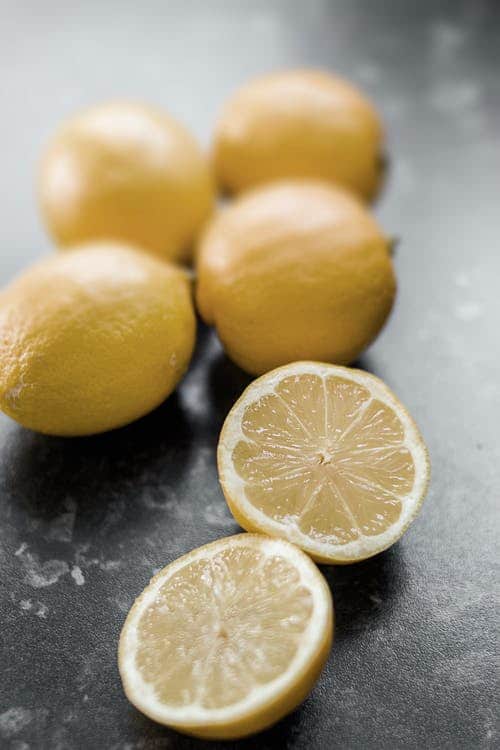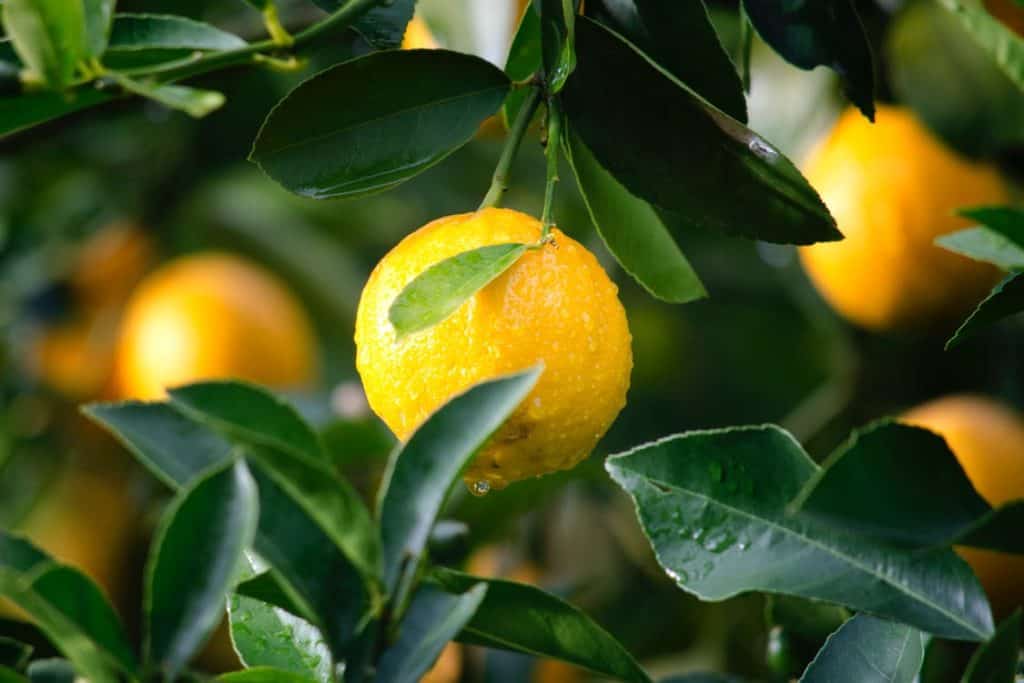The lemon is a fruit that has been used by humans for thousands of years. It is said to be one of the oldest fruits known to mankind, and it’s also very popular these days as well. There have been many different legends about how exactly this lemon came into being; some say that they were originally grown in China while others claim that they originated from Africa or India.
However, there is no doubt that modern-day farmers around the world tend them today. The reason why people love growing lemons so much can be attributed to their pleasant aroma, unique taste, and beautiful skin color. People who enjoy eating fresh lemons will certainly appreciate all those qualities.

They’re not only tasty but also healthy to eat which makes them even more attractive to most consumers. Some countries like Italy, Spain, France, Germany, Egypt, Morocco, Turkey, Iran, etc. grow citrus trees on an industrial scale and produce millions of tons of food products each year using lemons as their main ingredient.
Lemons are cultivated in tropical areas where the weather conditions allow it to thrive. These include regions such as California, Florida, Mexico, Brazil, South America, Hawaii, Australia, New Zealand, Madagascar, East Africa, West Indies, Malaysia, Indonesia, Thailand, Philippines and Vietnam among other places.
Farmers use various kinds of soil and fertilizers when they plant these types of crops. If you look closely at the leaves of a lime tree, you’ll see that they contain tiny hairs called trichomes which help protect the plants against insects. This same feature exists in the peel of a lemon. When sunlight strikes the lemon peels, it produces vitamin C which helps strengthen our immune system and prevents infections caused by viruses and bacteria.
Another important property of the lemon peel is that it contains limonene oil which gives off a strong smell similar to a freshly cut grass lawn. Limonene oil has several health benefits because it possesses anti-inflammatory properties. Other than preventing infection, limonene oil may reduce cholesterol levels in your body. On top of that, it helps fight cancerous cells and protects us from harmful free radicals. So next time you feel thirsty just take a sip of water with a slice of lemon attached! You won’t regret drinking it.
Nowadays there are several companies involved in producing commercially farmed lemons especially since demand keeps increasing every year. Most of these farms belong to large corporations such as Del Monte, Dole Food Company, Kraft Foods Inc., Nestlé S.A., Proctor & Gamble (P&G), Quaker Oats Co., Mars Incorporated, Colgate Palmolive Group, General Mills Inc., Hershey Company, Unilever, PepsiCo Inc., Coca-Cola Enterprises Inc. and Kellogg’s Cornflakes/General Mills Inc.. Many of these major companies sell juice containing high amounts of sugar content and preservatives which make up 90% of what we consume daily.
Unfortunately, too much consumption of processed foods can result in obesity, diabetes, heart diseases and digestive disorders. A great way to avoid having to buy overpriced juices full of chemical additives is to start making your own fresh-squeezed lemonade instead. All you need is a blender, a cutting board, a knife, a bowl, a spoon, a pitcher, and a container. Once everything is ready, simply squeeze enough amount of whole lemons into the pitcher until it reaches the desired sweetness level. Then pour it back into the bowl and place it inside the freezer overnight. Next morning, transfer it into another container and keep it refrigerated until you want to serve yourself. Enjoy!
In order to answer whether lemons are natural or not, firstly let me ask you – “What do you consider as ‘natural’?” Is it something that occurs naturally without any human intervention? Or maybe it’s something that comes straight out from the earth or from nature without getting processed through machines? Well, I think that would depend upon your definition of “Natural” itself. But anyway, here is my point… Are they really natural? Just like anything else, the answer depends on whether we consider things manmade or not.
What does it mean for something to be considered as ‘Man Made’? Well, according to Wikipedia, it means that man had a direct influence on the creation process of a product or service. For example, did you know that the lemon was created by taking two species of Citrus and grafting them together?

Table of Contents
How the Lemon was Invented?
According to Dr. John Chapman, professor of horticulture at the University of Wisconsin-Madison, the history behind the development of the lemon dates back to ancient times. He states that the earliest historical records showing reference of citrons date back to 3000 BC. And the earliest written record referring to oranges appears in Homeric literature.
Apparently, it took nearly 2000 years before scientists discovered that both species belonged to the same family.
So now that we’ve established that the lemon is indeed a natural fruit, the question remains – How did it become available for us to purchase? Did someone create it specifically for our personal enjoyment? Who actually put the seeds onto the ground to sprout this amazing fruit? Where did it originate from?
Was it planted by primitive tribesmen living in Central Asia, North Africa or the Middle East? Were farmers in southern Europe responsible for planting it? Could it possibly have been introduced to us via trade routes between distant lands during medieval times? No one knows the exact answers to these questions, however, there are theories floating around on the internet regarding possible explanations.
One theory claims that a kind of fungus invaded the roots of citrus trees resulting in severe damage. Afterward, scientists noticed certain characteristics of the damaged trees including yellowish coloring and thick fleshy rinds.
Eventually, they decided to transplant the affected parts from the original trees into new ones. Henceforth, the new hybridized citrus trees started bearing fruit after approximately 30 to 40 years. Since then, farmers began harvesting the sweetest portions of the citrus fruits to extract the juice and dry the rest for future use such as candying.
